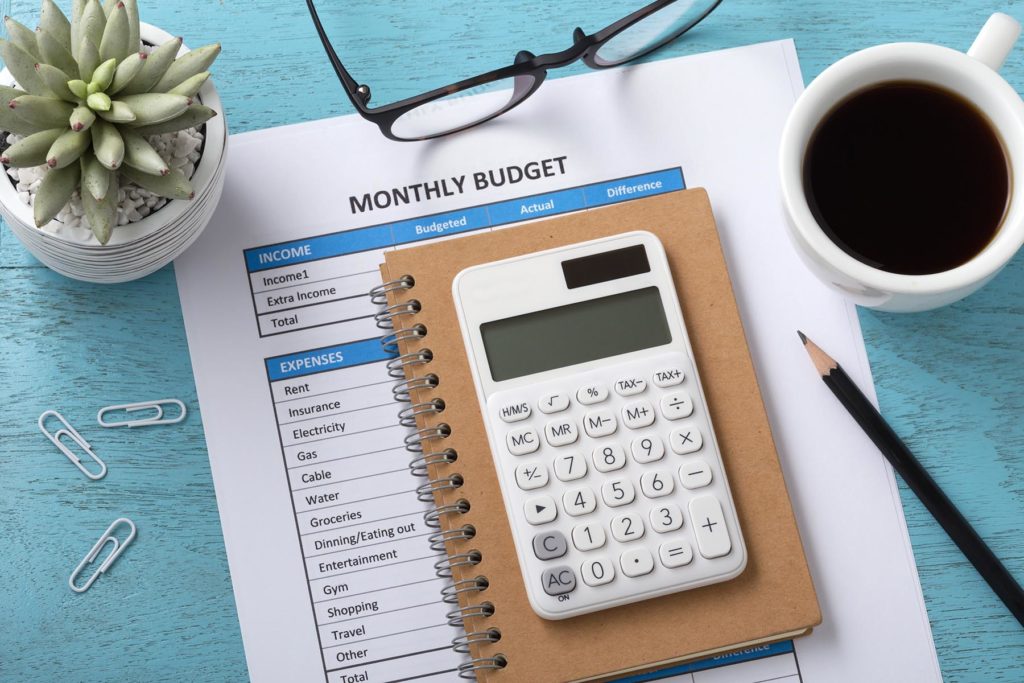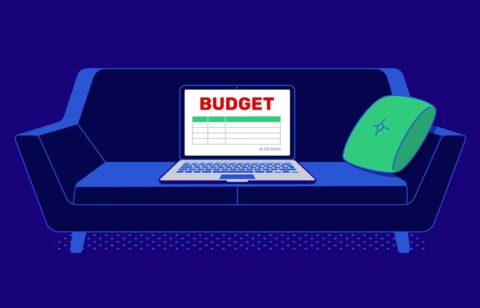Few people actually enjoy budgeting. In fact, about 60% of folks don’t even have a household budget of any kind. Unfortunately, if you don’t create some sort of budget to help you allocate your financial resources, it can be very difficult to accomplish important things, such as saving and investing or paying off your credit cards to become debt free. Fortunately, you don’t have to learn to love budgeting to get a handle on your personal finances. Instead, you can apply some simple money management practices to get the most out of your hard-earned cash. Here are five great budgeting tips for people who hate budgeting.
1. Leverage Apps and Automated Payments
If the tedious, time-consuming aspects of budgeting are a major turnoff, don’t worry. You can use technology to your advantage and limit all that budgeting monotony. There are dozens of great apps that make it easier than ever to track your money, make payments, and watch where and how you’re saving and spending money. Apps such as Mint, for example, can help keep all your financial info as close as your smartphone or another mobile device. Additionally, setting automated payments can help ensure you follow sound budgeting principles month after month, even if you’re not poring over a spreadsheet to track where every penny goes. For instance, ensuring that a set amount of money is transferred to a savings or investment account every time you’re paid will ensure you’re adhering to long-term savings objectives, even if you aren’t using a traditional budget to track your goals.
2. Set up Multiple Accounts
You can also make it easier to achieve major long-term financial goals by setting up different accounts for each one. Having a separate bank or investment account for things such as college savings, an upcoming vacation, a new home or car, and other major financial goals will help you save toward those goals each month and make it easier to track them. Instead of trying to reconcile a budget each month to see if you’re meeting your financial goals, you can simply check an account balance. If you want to ensure you’re consistently contributing to each one of these goals each month, you can also set up automated monthly payments, so a set amount from your paycheck is allocated to them without you even having to think about it.
3. Stuff Those Envelopes
Another simple way to control spending without using a detailed budget is the envelope method. Using the envelope method, you divide your discretionary spending into categories, such as dining out, new clothes, movie nights, and so forth. Write each of these categories on an individual envelope, determine how much you want to spend on each one, and then stuff each envelope with the appropriate amount of cash on payday. Then, remove the money from the envelope whenever you want to enjoy one of these activities. Once an envelope is empty, you’ve reached your monthly budget allocation for that activity. While the envelope method doesn’t provide for any sort of long-term planning, it does help you keep your discretionary spending under control, so you have money left over each month to save and invest.
4. Get Help
If you feel lost when it comes to budgeting your money, don’t try to go it alone. Instead, find a trusted financial advisor who can help you make a plan that’s easy for you to follow. A good financial advisor can help you determine your short- and long-term financial goals and then work with you to put the systems in place that enable you to achieve them. A trusted professional can relieve much of the stress and anxiety that comes with attempting to manage a budget, and help you get the most out of the money you make. Good financial advisors can also signal when you’re heading toward a perilous financial situation, or help you know when to take advantage of fleeting opportunities. Finally, some advisors can also assist you with other critical financial tasks, such as preparing your state and federal income tax returns.
5. Monitor Progress and Take Victory Laps
Whatever alternative budgeting system you use to manage your finances, keep a close eye on how well you’re meeting your goals. When you do achieve a financial milestone, such as paying off a major debt or reducing discretionary spending, make a big deal out of it. One of the biggest challenges to managing finances is follow-through, so a little celebration can help you reinforce the positive behavior and discipline you’ve used to achieve your goals. Treat yourself to a fun night out, or buy a modest personal item that you’ve been holding back on due to the price. Meeting objectives and marking them with a little fun can help you stay on track to achieving your long-term financial goals.
Make Budgeting Simple and Effective
Even if you hate budgeting, you need to use some means to manage your money and achieve your short- and long-term financial goals. These simple tips can help you limit your discretionary spending, monitor where and how you’re saving and spending money, and help you invest for the future without even having to think about it. They can also help you learn how to reinforce the positive behaviors you’ll need to manage your money effectively throughout the rest of your life. Consider the tips discussed here and start taking control of your finances today.





